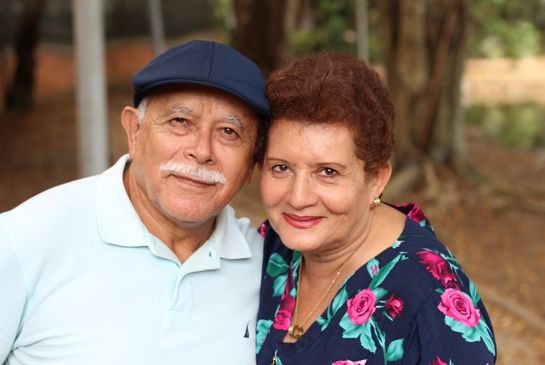The Community and Collaborator Engagement program is a well-established resource linking investigators and community partners to implement the mission of building capacity and infrastructure for clinical and translational research among investigators, patients, health care providers, policymakers, and community-based organizations. The program leverages institutional centers and resources focused on community partnerships.
Community and Collaborator Engagement

Community and Collaborator Services
About Us
Event video: https://pixies.et/ANJkx6Ct
2025 UC BRAID Community Engagement Summit: Strengthening Community Engagement Across the UC System
Community engagement is key to ensuring the work we focus on at an institutional level is both informed by and benefits our local, regional, and national community members. Without community input and involvement throughout all stages of research, clinical, and translational science would not be as impactful.
Hosted at UC Davis Aggie Square | September 10–11, 2025
The University of California Biomedical Research Acceleration, Integration, and Development program (UC BRAID) convened its inaugural Community Engagement Retreat at UC Davis’s new Aggie Square on September 10–11, 2025. The two-day event brought together leaders, researchers, and community partners from across the UC system, the state of California, and the NIH National Center for Advancing Translational Science (NCATS). The retreat facilitated initial conversations and networking across multiple campuses and community partners to promote community-engaged involvement, leadership, and participation in clinical and translational science and the research process.
SETTING THE TONE: BRIDGING RESEARCH AND LIVED EXPERIENCE
In his opening remarks, Ted Wun, MD, FACP, UC Davis Clinical and Translational Science Center MPI, welcomed participants by emphasizing the importance of connecting UC’s research mission with the lived experiences of California’s communities. He was joined by UC Davis School of Medicine Dean Susan Murin, MD, MSc, MBA; Pastor Mark Meeks of City Church Sacramento; and UC BRAID Executive Committee member Arleen Brown, MD, PhD, UCLA Clinical and Translational Science Institute MPI. Together, they reminded participants that meaningful partnerships require researchers to listen, adapt, and build trust with the communities they serve.
Elizabeth Boyd, PhD, UC BRAID Executive Director, framed the summit’s purpose as an opportunity for both reflection and action. Alongside Community Engagement Advisor Norma Stoker Mtume with UCLA, Boyd emphasized that advancing research is not only about scientific innovation but also about humility, gratitude, and sustained collaboration. This call set the tone for interactive sessions, where researchers and community partners shared resources, struggles, and successes from across the UC system.
COMMUNITY ENGAGEMENT AS A NATIONAL PRIORITY
Day Two expanded the conversation to state and federal perspectives. Joni Rutter, PhD, Director of the NIH, NCATS outlined NIH’s priorities for advancing translational science and stressed that while community engagement may not always be explicitly listed as a priority, it is foundational to the success of every initiative. She urged participants to “think big and bold” and to recognize that research outcomes are only as strong as the trust and partnerships that underpin them.
Her message was echoed by Michael Kurilla, MD, PhD, Director, Division of Clinical Innovation, NCATS, who added that advancing translational science requires uniting communities while also preparing the next generation of physician scientists to address challenges such as workforce shortages and to harness opportunities in AI, digital health, and emerging biology.
FROM DISCUSSION TO ACTION
The summit concluded with collaborative brainstorming sessions, during which participants generated actionable steps to strengthen community-academic partnerships and ensure accountability to the communities most impacted by research.
In his closing remarks, Sergio Aguilar-Gaxiola, MD, PhD, UC Davis CTSC, highlighted how community engagement can be translated into policy, trust-building, data sharing, and measurable impact. Along with colleagues Courtney Lyles, PhD, and Debra Oto-Kent of the Sacramento Health Education Council, he outlined the importance of sustaining momentum beyond the summit.
CHARTING A PATH FORWARD
Over two days, the UC BRAID Community Engagement Summit highlighted how leaders, researchers, and community partners are collaborating to advance impactful research. The examples shared by Wun, Brown, Boyd, Aguilar-Gaxiola, and federal partners outlined the next steps for fostering new partnerships, translation into policy, sharing impact, building trust, data sharing, and collaboration. This summit reaffirmed UC BRAID’s commitment to ensuring that research is informed by, and accountable to, the communities it seeks to serve.
Key Question:
How do we support bidirectional learning between universities and communities?
ABOUT UC BRAID
University of California Biomedical Research Acceleration, Integration & Development (UC BRAID) connects researchers and administrators to solve problems, increase opportunities, and create efficiency of scale. Our platform of shared governance acts as a catalyst for collaboration, enabling us to amplify individual work and multiply its impact. Formed in 2010, the UC BRAID consortium aims to accelerate research and improve health through collaboration, sharing resources, and infrastructure development.
-

Community Boards and Partners
-

Resources and Support
-
Our Team
Faculty Directors
- Sergio Aguilar-Gaxiola, M.D., Ph.D.
Research Profile for Sergio Aguilar-Gaxiola
Program Director, Community and Collaborator Engagement
916-703-9114 | aguilargaxiola@health.ucdavis.edu - Kathleen Angkustsiri, M.D., M.A.S.
Research Profile for Kathleen Angkustsiri
Co-Director, Integrating Special Populations Into Research
kangkustsiri@health.ucdavis.edu - Martin Cadeiras, M.D.
Research Profile for Martin Cadeiras
Co-Director, Community and Collaborator Engagement
mcadeiras@health.ucdavis.edu - Theresa Keegan, Ph.D., M.S.
Research Profile for Theresa Keegan
Co-Director, Adolescent and Young Adult Recruitment and Retention
tkeegan@health.ucdavis.edu - Oanh Meyer, Ph.D., M.A.S.
Research Profile for Oanh Meyer
Co-Director, Integrating Special Populations Into Research
olmeyer@health.ucdavis.edu - Julie Schweitzer, Ph.D.
Research Profile for Julie Schweitzer
Co-Director, Adolescent and Young Adult Recruitment and Retention
jschweitzer@health.ucdavis.edu
Staff
- Jessica M. Jones, M.P.Aff., M.S.C.R.P.
Community-Engaged Research Training Program Coordinator
jesjones@health.ucdavis.edu - Silvia Molina, M.P.H.
Community and Collaborator Engagement Program Co-Manager
scmolina@health.ucdavis.edu - Vanessa Trujillo, M.P.H., PMP
Community and Collaborator Engagement Program Co-Manager
vitrujillo@health.ucdavis.edu - Gloria Zavala Perez, M.P.H.
Community and Collaborator Engagement Program Analyst
gzavala@health.ucdavis.edu
- Sergio Aguilar-Gaxiola, M.D., Ph.D.




